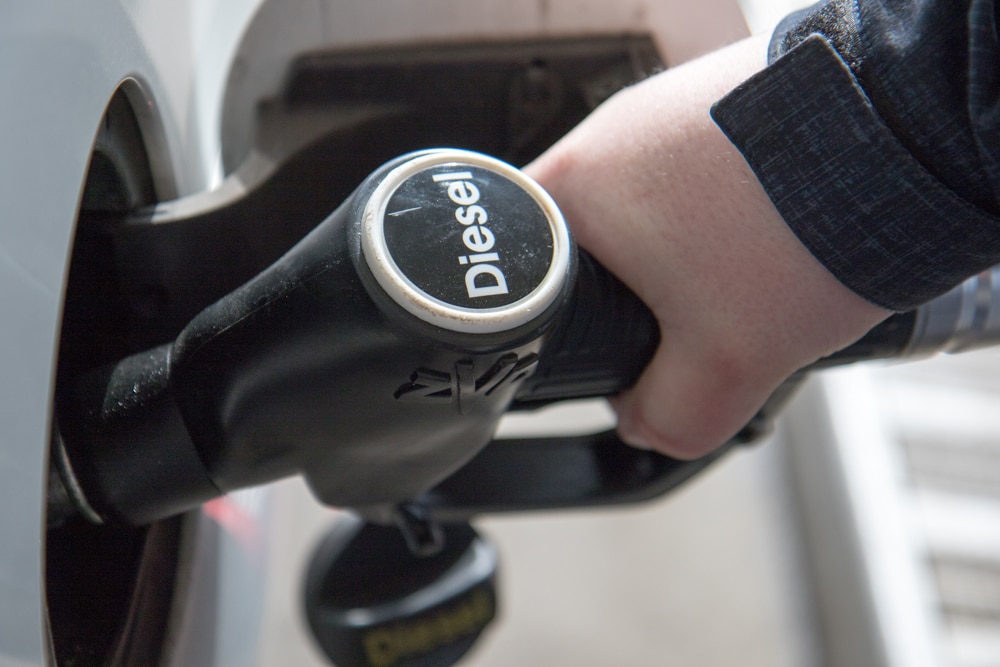A Guide to Diesel Vehicles
Discover of the entire landscape of diesel vehicles in the U.S. market today.
 Shutterstock
Shutterstock
Even after a
If you're wondering where all the diesel cars went, it's likely due to dwindling sales numbers for the automakers that still sold them after the "Dieselgate" scandal that came to light in 2015. The simplest version of what happened is that Volkswagen vehicles were found to deliberately emit more than the legal emissions limit during actual driving, while emitting below the legal limit while being tested for emissions. When the dust settled, massive fines were given out, and consumers were left with fewer diesel vehicle options as Volkswagen, Audi, and Porshe stopped selling their diesel models.
Now, the only diesel vehicles offered in the U.S. market are pickups, SUVs, and cargo vans aimed squarely at the commercial vehicle market.
The "How" on Diesels
First, let's get into what diesel vehicles are. The diesel engine has no spark plugs to ignite the mixture of fuel and air introduced to the engine. Rather, very high compression causes that combustion, which makes it more efficient and thrifty with fuel than a gas engine. The trade-offs, though, are that diesels are slightly louder because of that high compression and the engine's heavier internal components. Diesel emissions are harder to scrub clean to comply with pollution standards, but the old days of diesel exhaust soot fouling the air are gone. (If you do see a modern diesel vehicle puffing out black smoke, it's likely been tampered with to produce more power, with many of the emissions components removed or bypassed—it's also highly illegal in most areas).
For people who must tow heavy equipment, a diesel engine can be a great option. Private individuals in the excavation business, landscapers, home builders, and even folks who tow race cars rely on diesels in light-, medium-, and
Running Costs of Diesel Vehicles
Many years ago, diesel fuel was always
Diesels have traditionally been more durable and reliable than gasoline engines, requiring less frequent and less involved regular maintenance. But with the durability improvement in modern gas engines and the much higher power output of modern diesel vehicles—plus their exhaust after-treatment systems to help them run more cleanly—the difference between the two in this regard has diminished somewhat.
A quick look at
Calculating the Benefits
Generally speaking, diesel vehicles are about 29% more fuel-efficient on the highway and about 24% more efficient in the city. But if you want to take a more scientific approach to understand exactly what the differences will be over time and for the different fuel and efficiencies, use the U.S. government's nifty little
Let's look at the numbers generated in this manner for a 2022 Chevy Tahoe LT large SUV in both standard 5.3L gas engine and the 3.0L diesel option. Using a 50% split in city versus highway driving, plus the above 49-state fuel cost averages and a total yearly mileage of 15,000, shows that the diesel option saves $539 per year. This is despite the higher fuel cost. However, that does not reflect the additional cost of the diesel option itself, which is about $1,000 in the Tahoe's case. So, to recover that cost, you'd have to drive it for two years just to break even on the price difference. This still might make sense for you if you plan to keep the car for much longer. It will save you $539 per year for every year you own it, and at the 10-year mark, you'll be about $4,390 ahead in running costs versus the gasoline Tahoe.
Finding a Diesel Vehicle
Now comes the big question: Which trucks and SUVs offer a diesel engine today? There are 15 total available, but three of those are cargo vans meant for delivery services and commercial sales. Seven are pickups, and five are SUVs of varied sorts, but no traditional passenger cars are offered with diesel power in the U.S. The available vehicles include:
Cadillac Escalade SUV
Chevrolet Colorado pickup
Chevrolet Silverado pickup
Chevrolet Express van
Chevrolet Tahoe SUV
Chevrolet Suburban SUV
Ford Transit van
Ford F-Series pickup
GMC Canyon pickup
GMC Sierra pickup
GMC Yukon SUV
Jeep Wrangler SUV
Jeep Gladiator pickup
Mercedes-Benz Sprinter van
Ram 1500 pickup
For sure, the incentive in the
Written by humans.
Edited by humans.
 Jim Resnick
Jim ResnickFrom racing exotic sports cars, to ranking new cars, to peeling back layers of cover up in an exhaust emissions scandal, Jim has chronicled the automotive sector for decades. Jim has also worked inside the corporate headquarters of three carmakers, and therefore understands how the automotive sausage is really made. But Jim’s affinity for vehicles takes a back seat to finding the truth and the cultural implications of modern transportation. He has also lectured at universities to engineering and policy students and faculty on the industry’s relationship with legislation in the wake of the diesel exhaust emissions scandal several years ago. Put simply, Jim reports on autos, mobility, tech, car culture, and the traffic jam of topics within.
Related articles
View more related articles